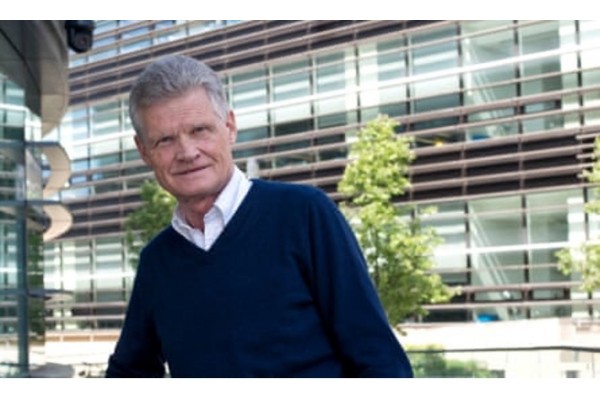Patients losing out amid slump in NHS clinical trials, warn top clinicians UK falls from fourth to 10th place in phase III trials amid ‘ossified’ bureaucracy and stretched health service
March 28, 2023
Source: drugdu
 554
554
The state of clinical trials in the NHS is “much worse than it has been in years” with patients losing access to cutting-edge cancer and dementia treatments, one of the UK’s most senior clinicians has warned.
Sir John Bell, the regius professor of medicine at the University of Oxford and a government life sciences adviser, said the UK’s approach needed “a full overhaul, top to bottom” to prevent a collapse in the number of clinical trials being conducted in the NHS.
“I don’t think there’s any doubt that companies are choosing not to evaluate their drugs in the UK,” he said. “The risks [to patients] are much bigger than have been alluded to.”
The intervention comes after the government launched an independent review led by the former health minister James O’Shaughnessy into why the NHS had seen a 44% drop in participants recruited to commercial clinical trials in the past five years. The UK is rapidly losing ground to countries such as Spain, Poland and Australia, falling from fourth to 10th internationally for phase III trials.

Prof John Bell says patients get access to groundbreaking treatments and the NHS makes money from conducting commercial trials. Photograph: Sophia Evans/The Observer
Reduced access to trials is particularly concerning for patients with limited routine treatment options, such as the roughly 3.5 million people living with rare diseases and patients with dementia and advanced cancer.
Beyond clinical benefits, the NHS makes money from conducting commercial trials. “You get the drugs for free, you get the treatment for the control arm for free, the NHS rides for free for everyone in the trial and pharma pays pretty well to get these trials done,” said Bell.
However, Bell said bureaucracy that had been simplified during the pandemic to fast-track trials had “crept back into the system and ossified” and the overstretched NHS workforce was losing capacity for research. “The system needs a pretty serious revamp,” said Bell. “[The government] is not going to fix this by just turning the handle a bit harder.”
Official figures show just 52% of trials in the NHS are running to schedule – a significant improvement in recent months but still some way from the target the Department of Health has set for 80% trials being delivered to time and target by June.
The department has directed funders to shut down any trials that have missed their target to start recruiting by more than 90 days, with one in 10 trials being monitored under its Reset Research programme set to close prematurely. Five hundred trials have been closed under the initiative since May last year.
Other senior clinicians also raised concerns. Prof James Rowe, a senior dementia researcher at the University of Cambridge and consultant neurologist, said the UK’s lengthy approvals process could leave clinicians and their patients frozen out of international multicentre trials.
“If it’s going to take you 12 months to get started in the UK, by the time you get the green light the trial is effectively closing for recruitment internationally. It could be futile to begin the work to set up,” he said.
“It’s a great pity as there’s fantastic progress in the dementia world. There are 300 clinical trials for dementia worldwide. The UK should be at the forefront of this, not putting up barriers.”
Prof Paul Stewart, the vice-president (clinical) of the Academy of Medical Sciences and of the University of Leeds, said research tended to be viewed as a luxury rather than an integral part of the NHS’s mission.
“As I reflect on my 40-year career in the NHS, there have always been challenges, but now the crisis has come to a head in terms of a research capacity issue. The current environment is extremely challenging,” he said.
Dr Ian Walker, of Cancer Research UK, said the pandemic continued to “cast a long shadow” over clinical research. “As backlogs for diagnosis and treatment grow, NHS staff face more pressures and protecting time for research is increasingly difficult,” he said. “If this pattern continues, it means slower progress towards brand new treatments for cancer.”
George Freeman, the minister at the Department for Science, Innovation and Technology, said: “Commercial clinical trials are absolutely vital to both our UK life sciences sector and widening NHS patient access to innovative medicines all across the UK. The UK has traditionally been a strong global location for trials, as demonstrated most recently through the groundbreaking Covid recovery trial which was set up in record time and was the world’s largest randomised controlled trial for Covid-19.
“However, our life sciences sector has reported a 44% fall in recruitment of patients to commercial clinical trials between 2017 and 2021 – so it is vital that we act to rebuild competitiveness.”
https://www.theguardian.com/science/2023/feb/27/patients-losing-out-amid-slump-in-nhs-clinical-trials-warn-top-clinicians
By editorRead more on
- The first subject has been dosed in the Phase I clinical trial of Yuandong Bio’s EP-0210 monoclonal antibody injection. February 10, 2026
- Clinical trial of recombinant herpes zoster ZFA01 adjuvant vaccine (CHO cells) approved February 10, 2026
- Heyu Pharmaceuticals’ FGFR4 inhibitor ipagoglottinib has received Fast Track designation from the FDA for the treatment of advanced HCC patients with FGF19 overexpression who have been treated with ICIs and mTKIs. February 10, 2026
- Sanofi’s “Rilzabrutinib” has been recognized as a Breakthrough Therapy in the United States and an Orphan Drug in Japan, and has applied for marketing approval in China. February 10, 2026
- Domestically developed blockbuster ADC approved for new indication February 10, 2026
your submission has already been received.
OK
Subscribe
Please enter a valid Email address!
Submit
The most relevant industry news & insight will be sent to you every two weeks.



